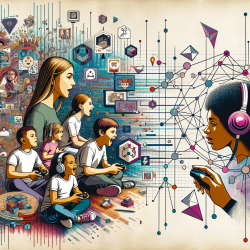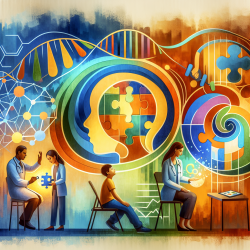Understanding the Impact of Systemic Racism on Child Development
Systemic racism in the USA has profound effects on child development, impacting physical, mental, and behavioral health. Recent research highlights the importance of ethnic-racial identity in mitigating these effects. As practitioners, understanding these dynamics is crucial for improving outcomes for children.
The Role of Racial Identity
Research shows that a well-developed ethnic-racial identity can mitigate the behavioral effects of racial encounters in children. For instance, children with a strong commitment to their ethnic-racial group exhibit fewer internalizing and externalizing behavioral problems, even when faced with discrimination.
Adiaha Spinks-Franklin, a leading researcher, emphasizes the distinction between racial awareness and racial identity. While racial awareness involves understanding societal racial climates, racial identity pertains to personal identity within a racial culture, shaped by lived experiences.
Developmental Stages and Racial Awareness
Children begin recognizing phenotypic differences as early as six months old. By ages 2-3, they are aware of human variations and can identify others using physical attributes. As children grow, their understanding of racial stereotypes and their implications deepens, influencing their identity development.
During adolescence, racial identity formation becomes particularly salient. Minority adolescents may experience identity-shifting encounters, leading them to explore their ethnic-racial identity through culturally based activities.
Addressing Systemic Racism in Practice
Practitioners must address systemic racism's root causes to combat its effects on child health. Historical redlining and residential segregation contribute to health disparities, influencing access to resources and exposure to pollutants.
Educational disparities also play a significant role. Minority ethnic groups often face lower-quality schooling, fewer skilled teachers, and inadequate resources, affecting educational attainment and long-term opportunities.
Strategies for Practitioners
- Engage in racial socialization: Equip children with skills to navigate a racially hostile environment and foster cultural and racial pride.
- Examine personal biases: Practitioners should assess their implicit racial biases and strive to be non-racist and anti-racist.
- Promote diverse curricula: Incorporate positive representations of minority ethnic groups to educate children about different cultures and identities.
- Advocate for policy changes: Support initiatives that address systemic policies undermining child health and promote inclusion and diversity.
Further Research and Collaboration
Further research is needed to explore the role of racism and ethnic-racial identity in child development. Practitioners should collaborate to implement cultural and ethnic-based initiatives, supporting children in their development and addressing racism at its roots.
To read the original research paper, please follow this link: Growing up with systemic racism in the USA.










